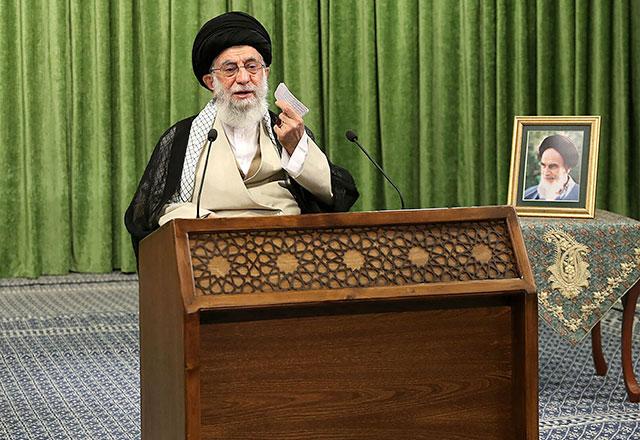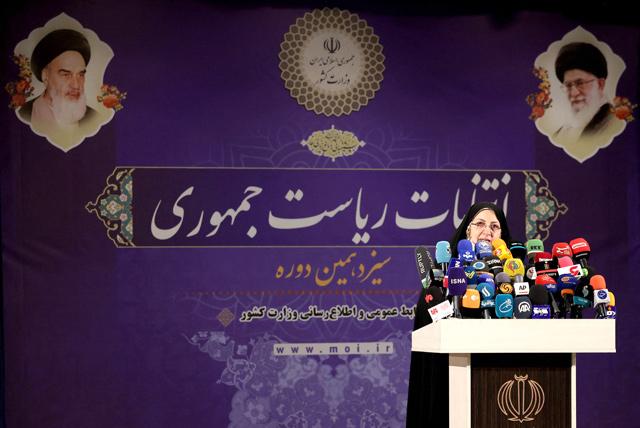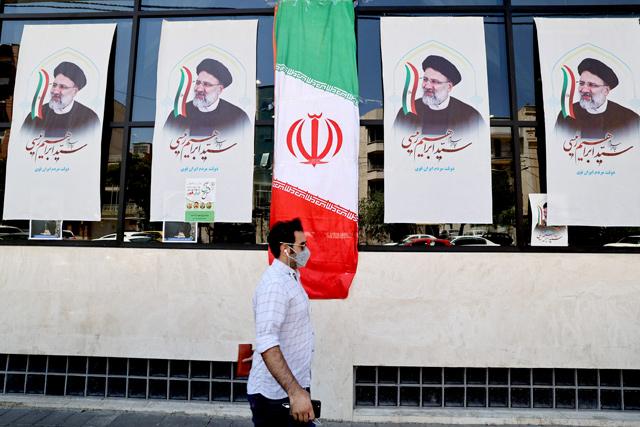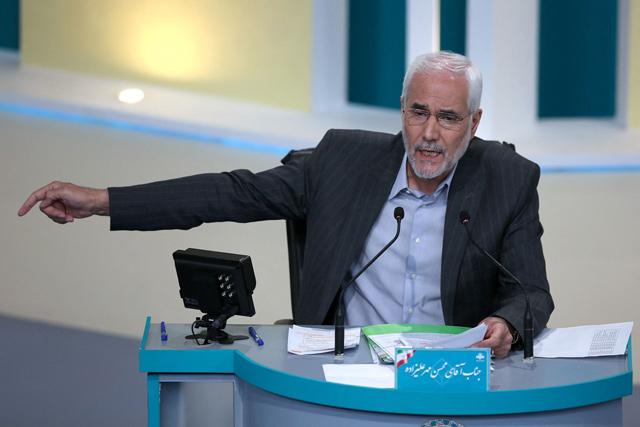You are here
Iran's Khamenei turns deaf ear to criticism over election
By AFP - May 27,2021 - Last updated at May 27,2021

This handout photo provided by the office of Iran's Supreme Leader Ayatollah Ali Khamenei on Thursday shows him addressing parliament members during an online meeting in the Iranian capital Tehran, with a picture of his predecessor, the late Ayatollah Ruhollah Khomieni next to him (AFP photo)
TEHRAN — Iran's supreme leader on Thursday urged voters to ignore boycott calls and turned a deaf ear to criticism over the rejection of all but mainly ultraconservative hopefuls for next month's presidential election. Iranians are set to elect a successor to President Hassan Rouhani on June 18 amid widespread discontent over a deep economic and social crisis, and after the violent repression of waves of protests in the winter of 2017-18 and in 2019.
The opposition based outside Iran has for months run a campaign on social media networks calling on Iranians to stay away from the polls, using hashtags in Persian such as #NototheIslamicRepublic. "Do not pay attention to those who are campaigning and saying it is useless to go to the polls and that one should not go to the polls," supreme leader Ayatollah Ali Khamenei told lawmakers in a speech via videoconference, according to his official Instagram account. Khamenei's declaration comes a day after Rouhani said he had asked the supreme leader to intervene to ensure greater "competition" in the presidential election.
The Islamic republic's candidate-vetting Guardian Council on Tuesday approved seven mainly ultraconservative candidates to run in the election from a field of about 600 hopefuls.
The council -- a conservative-dominated, unelected body -- disqualified moderate conservative Ali Larijani and first vice-president Eshaq Jahangiri, as well as firebrand former president Mahmoud Ahmadinejad. The move appears to have cleared the way for a strong run by ultraconservative judiciary chief Ebrahim Raisi.
But it also unleashed a flood of criticism of the Guardian Council and is expected to lead to an increase in voter abstention.
Raisi 'unrivalled'
Rouhani, who is constitutionally barred from running for a third consecutive term, said on Wednesday he had sent a letter to Khamenei asking for a revision of the list of approved candidates.
He warned that "the heart of elections is competition. If you take that away it becomes a corpse."
The president also warned of the risk of low voter turnout and said the system's "continued legitimacy" was at stake.
"If the candidates can prove to the people that they are effective, the people will come to the polls and the turnout will be high, God willing," Khamenei said on Thursday.
A record 57 per cent of Iranians stayed away from legislative elections in February last year after thousands of candidates, many of them moderates and reformists, were disqualified.
The poll comes at a critical time amid talks with world powers aimed at reviving a 2015 nuclear deal that offered sanctions relief in return for Iran's agreement to tighten controls on its nuclear programme. The accord has been on life support since then-US president Donald Trump unilaterally withdrew from it in 2018 and re-imposed crippling sanctions on the Islamic republic.
Iran, which retaliated against the US move by rolling back its nuclear commitments, is seeking the lifting of the sanctions.
Larijani, an adviser to Khamenei and former parliamentary speaker, was seen as the only person capable of challenging Raisi, who is now considered the "unrivalled candidate", according to the reformist newspaper Etemad.
Raisi won 38 per cent of the vote in the 2017 presidential election but was defeated by Rouhani.
The judiciary chief says the priority is to secure the lifting of US sanctions -- implying that, if he wins, he will keep Iran in the nuclear agreement. Khamenei, who endorsed the continuation of the nuclear talks to secure the lifting of sanctions, took the issue out of the equation for the candidates in his remarks on Thursday.
"I've heard it said that... candidates should speak... on foreign policy. No!" the supreme leader said.
"The main problem of the people is youth unemployment," he said, adding that "candidates must talk about [such issues] when they address the people."
Related Articles
TEHRAN — Two Iranian political heavyweights, ultra-conservative Ebrahim Raisi and moderate conservative Ali Larijani, on Saturday launched w
TEHRAN — Iranians will vote for a new president on June 18 in a poll many see as decided in advance, with ultraconservatives expected to str
TEHRAN — Iran’s ex-parliament speaker Ali Larijani on Saturday demanded an explanation of why he was barred from running in next week’s pres


















